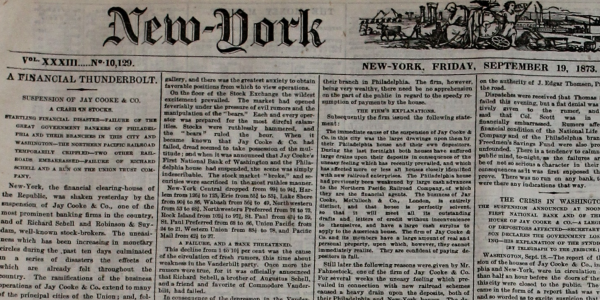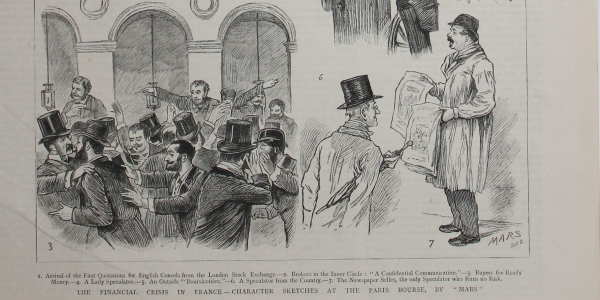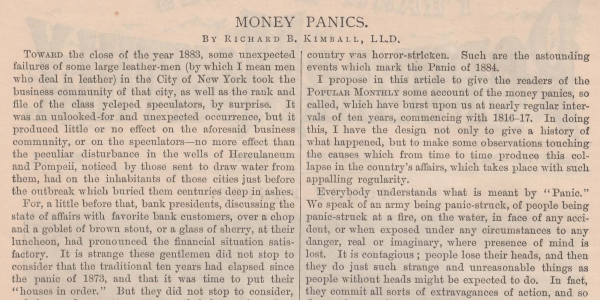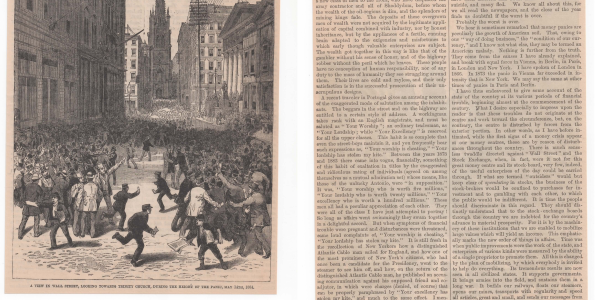Cynical Capitalist
The portfolio, snapshots of memorabilia and artifacts in the collection
Late XIXth century panics
The Panic of 1873 triggered a severe international economic depression in both Europe and the United States
that lasted until 1879, and even longer in some countries. The depression was known as the "Great Depression"
until the 1930s, but is now known as the Long Depression. The panic was caused by the fall in demand for silver
internationally, which followed Germany's decision to abandon the silver standard in the wake of the Franco-Prussian war.
Paris Bourse crash of 1882 was a stock market crash in France, and was the worst crisis in the French economy
in the nineteenth century. The crash was triggerd by the collapse of l'Union Générale in January.
Around a quarter of the brokers on the bourse were on the brink of collapse.
The closure of the exchange was prevented by a loan from the Banque de France which enabled sufficient
liquidity to support settlement.
Panic of 1884 was a panic during the Recession of 1882-85. Gold reserves of Europe were depleted and the New York City
national banks, with tacit approval of the United States Treasury Department, halted investments in the rest of the
United States and called in outstanding loans. A larger crisis was averted when New York Clearing House bailed out banks
in risk of failure. Nevertheless, the investment firm Grant & Ward, Marine Bank of New York, and Penn Bank of Pittsburgh
along with more than 10,000 small firms failed.



